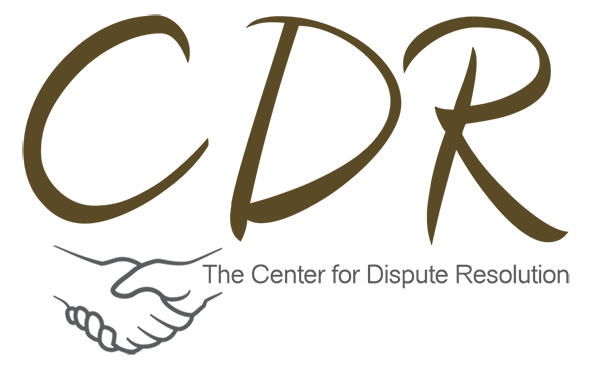
Brief Overview of Mediation
Mediation is a process in which a neutral third party, called a mediator, assists disputants in reaching an agreement settling part or all of their differences. The process is non-binding, unless an agreement is reached, and the mediator has no authority to decide the issues or force a settlement. The actual conduct of the mediation may vary depending upon the style of the mediator and the nature of the issues in your case.
The mediation session may occur at a neutral location, in a conference room or office. The mediator will seat the participants, usually with the disputants closest to the mediator, and attorneys (if present) on the other side of their clients. This is not a hard and fast rule.
The mediation, ordinarily a voluntary process, is private, informal, and confidential. There are no court reporters, stenographers, or court officers allowed to participate. The mediator will guide the conduct of the mediation without the formal rules of evidence or procedure used in a court proceeding. The parties may work with the mediator to establish some group agreements (ground rules), time limits, and the necessity of future sessions.
The General Structure of Mediation
The mediation usually begins in joint session with an introduction of the process by the mediator. Each party is then given an opportunity to express their points of view and feelings; after which, the mediator may move back and forth between joint and private meetings (called caucuses). During this process, the mediator assists the parties in clarifying interests, discussing areas of disagreement, identifying options for possible solutions, and if appropriate, developing a Settlement Agreement.
Throughout the process, the mediator will focus on the parties’ perceptions, their interests, and concerns. Because the mediator’s emphasis is on the parties and not the law, attorneys (if present) can be helpful in discussing legal principles and rights that may be involved. A common understanding of what is likely to occur if the case is litigated can have a positive influence on the mediation.
Outcomes of Mediation
There are a few potential outcomes of a mediation:
- Full Agreement: If a settlement is reached on all of the issues, the mediator may assist the parties in drafting the Settlement Agreement.
- Partial Agreement: If a settlement is reached on part of the issues, the mediator may assist the parties in drafting a Settlement Agreement on those issues.
- No Agreement: If no agreement is reached, your matter will be in exactly the same position as it was prior to today.
- Additional meetings: If additional mediation sessions are needed, the mediator will assist the parties in scheduling those meetings.
✅ Resolve disputes effortlessly. ✅ Build stronger relationships. ✅ Subscribe FREE now!
Don't miss out! Join us today. 🚀


Comments are closed